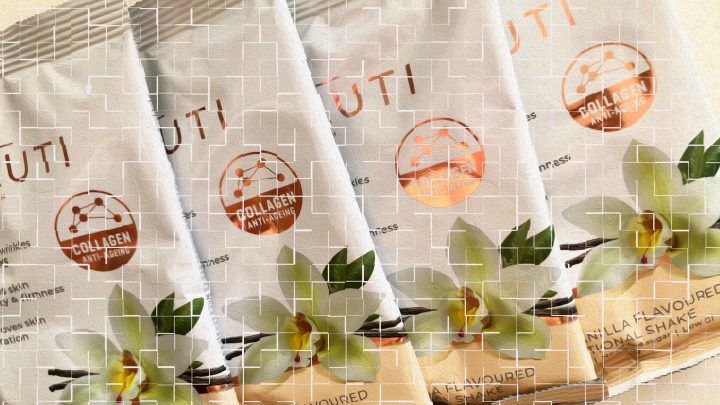WELLNESS
Collagen supplements: why the hype?

‘As we age our body produces less collagen and we lose about 1% collagen per year from about 30 years old,’ says dermatologist Dr David Presbury. Can we prevent this from happening?
During a brisk walk with health-conscious friends in one of Johannesburg’s leafy suburbs, a walker with youthful skin animatedly told the group that collagen had changed her life. For the first time her hair was thick, her skin smooth and her nails were stronger than ever before.
This is nothing new: much has already been written about the ‘miraculous’ effect of collagen supplements on one’s skin, heals joints, bones and nails or even on the prevention of hair loss. In fact, there are many brands selling collagen in different forms, quantities and at different prices.
Collagen forms connective tissue throughout the body from skin to bones, muscles, tendons and ligaments and makes up 70-80% of our skin.
“As we age our body produces less collagen and we lose about 1% collagen per year from about 30 years old,” says Dr David Presbury a dermatologist from Johannesburg.
Genetics, sun damage, alcohol, pollution, autoimmune disease and poor diet also affect the process. The result is that bones become fragile, muscles become weaker, skin sags and wrinkles appear. One’s skin’s elasticity deteriorates and becomes rougher and drier.
In response, the beauty industry has developed creams, powders, liquids and beauty treatments that promise to replace lost collagen and improve ageing skin, joints and muscle pain.
Collagen creams
Producers of collagen creams claim that using the creams will plump up tired skin and improve elasticity. According to Dr Harris Steinman a medical doctor who recently hosted a webinar on collagen organised by ADSA (Association for Dietetics in South Africa), their efficacy has not been proven. He says, “although creams containing collagen will not do much damage, they are produced in the deeper layers of the skin called the dermis. The creams can’t actually penetrate these layers”.
Collagen supplements
Steinman argues that the efficacy of supplements is also debatable and challenges the scientific research that makes claims about their efficacy. Brands try to convince consumers that not all supplements are equal.
According to Steinman, any collagen taken orally, whether in powder or tablet form, is broken down into amino acids or protein fragments before it is metabolised and absorbed. It will not necessarily translate into increased collagen in our body or target specific areas such as the face or joints. It will build, repair and strengthen tissue where it is deficient. The body constantly produces collagen and resynthesises collagen that occurs naturally in the body.
Dr Maureen Allem, a medical doctor with a special interest in skincare and ageing agrees and adds that dietary collagen which is not used by the body isn’t stored and any excess is used as fuel. It is only when a person’s diet lacks sufficient collagen, that taking collagen supplements could have indirect benefits.
In addition, Allem points out that collagen falls under the “dietary supplement” category and the law does not require supplements to be approved. This, Harris says, implies that a manufacturer or seller is not required to prove to the Food and Drug Administration (FDA) that the claims made are accurate or truthful. Only once it is on the market can the FDA rule against it if it finds it is harmful or misbranded.
How much dietary protein does one need to promote collagen production?
The amount of protein/ amino acids a person needs will vary; it depends on age, gender, physical activity etc. Allem says an average is about 200mg of protein per kg of body weight for a healthy protein intake.
A 30-year-old woman who weighs 60kg requires about 48-150 grams of pure protein per day. One chicken breast has about 21grams and a can of tuna 28grams.
Vegans can also easily meet their daily protein requirement by eating a varied plant-based diet that includes soy and lentils. Low starch foods such as vegetables, almonds, brans, olive oil and avocados reduce inflammation. This promotes collagen production.
Supplements: does more costly mean better quality?
A bigger price tag doesn’t mean better quality: the quality of a collagen supplement depends on factors that affect its bio-availability. Whether one takes collagen powder, liquid or tablets, makes no difference and is a personal choice. Hydrolysed collagen is superior to “pure collagen” or food that has been supplemented with collagen since hydrolysed collagen is already partly broken down for easy gut absorption. An average adult could take between 2.5 and 15 grams daily. Some vitamins and minerals further help assist the production of collagen in the body such as vitamin C, zinc and copper.
An alternative to generating natural collagen?
Finally, Presbury says one can generate collagen production by considering non-invasive beauty treatments such as Fraxel laser treatment and micro-needling. These treatments will generate collagen production that will make a measurable difference without the risks of surgery.
Fraxel lasers damage the skin by heating up the underlying layer and making microscopic holes in it. This stimulates wound healing and the growth of collagen fibres and new elastin. As it heals, the skin becomes smoother and tighter. Full recovery takes between a few hours and a few days depending on the intensity of the treatment.
But, regardless of the option you choose, a healthy diet is often all you need. DM/ ML















 Become an Insider
Become an Insider
Comments - Please login in order to comment.